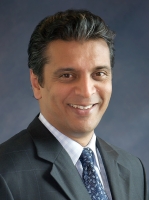MINT, Mexico, Indonesia, Nigeria, Turkey. Or maybe it's CIVETS. Colombia, Indonesia, Vietnam, Egypt, Turkey, South Africa. Either way, for anyone engaged in international business, ‘CIVETS' and ‘MINT' are both increasingly shorthand for taking the long view. Rich with possibilities, these young, vibrant new economies are just starting to flex their muscles, but by 2050 many are projected to make up the top 20 contributors to global GDP.
It is fascinating to scout the potential of these new markets, especially for someone like me who has worked across a number of regions with FedEx. I am curious and interested as to which direction these new markets will move.
In a world that is more connected than ever, UK companies need not feel limited to doing business with countries in their direct vicinity, and can find opportunity in more unexpected overseas markets . Vietnam and Indonesia, for example, typify the strength that nearly all MINT and CIVETS countries share: proximity to a huge market full of potential buyers, abundant natural resources and commodities to sell, as well as a young and increasingly well-educated population that is eager to work, and has money to spend. They are also better connected - both physically and virtually - to the world market.
While internet penetration varies between and within markets, emerging economies are the principal drivers of today's growth in global internet take-up. For example, internet usage in Nigeria and Vietnam grew from 200,000 users in 2000 to over 48 million and 31 million users respectively in 2012. This kind of change is opening up an abundance of opportunity, providing access to information and a vehicle for commerce. It is allowing businesses of all sizes - from established multi-nationals to budding entrepreneurs - to enter and participate in the world marketplace.
But the internet cannot stand alone. For these new markets to continue down a successful path, the right physical infrastructure must be in place to support meaningful connections among the businesses in that market to consumers all over the world. FedEx stands at the intersection of physical and informational infrastructure required for global commerce. We fully advocate the development of infrastructure in these emerging economies, whether it is the "hard" infrastructure of roads, bridges, ports, airports, power, and internet access, or the soft infrastructure such as liberalisation of trade policy, and an advanced educational environment.
The right investments will yield bright futures for these economies, and the role they can play in the global marketplace, especially when you consider that demographic dividend mentioned earlier. A lot of these markets will have a younger population for a long time, supporting a great new labour force and consuming class. But markets need to support that population with employment, business and educational opportunities.
FedEx continues to invest in new economies through acquisition and organic growth, granting UK businesses better access to new markets, emerging or otherwise. FedEx Express recently acquired Supaswift businesses in southern Africa, reflecting the continent's growing importance to the world economy. Closer to home, in May 2014, FedEx Express announced it had reached a significant milestone in its European growth programme of opening its 100th new station since October 2011. Currently, FedEx customers in Europe benefit from more localised connections to 90 % of the world's GDP within just one to two business days.
Today, anyone doing business must keep a sharp eye out for new markets just beginning to thrive. Nowadays more than 99 percent of the world's population resides outside of the United Kingdom[1]. That, plus the slow growth of traditional economic powerhouses and increased global connectivity, means newly emerging markets have greater access, and new opportunities to "grab the torch" for their leg of the race for economic prosperity.






